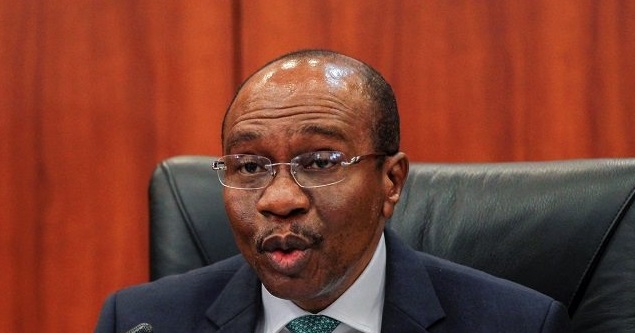Business
U.S. high yields responsible for external reserves depletion – CBN

The Central Bank of Nigeria (CBN) has blamed the steady decline in the nation’s external reserves on higher yields in the United States.
CBN Director of Corporate Communications, Isaac Okorafor, stated this while speaking during the CBN Day at the ongoing Abuja International Trade Fair in Abuja on Wednesday.
The nation’s foreign exchange reserves, which stood at $47.79 billion as of July 5, lost $3.77 billion to $44.03 billion on October 2, the lowest level in almost seven months.
Ripples Nigeria reports that the reserves depletion was attributable to CBN’s sustained weekly interventions in the foreign exchange market, continued exits of foreign portfolio investors ahead of the 2019 general elections and also the resonating effects of investors’ divestment of portfolio assets from emerging markets to advanced economies.
Recall that the apex bank on several occasions had declined calls to allow the forces of demand and supply to determine the value of the local currency in the forex market, but it fixed the foreign exchange rate while it continually injects dollars from the nation’s reserves to keep the Naira stable.
But according to Okoroafor, the nation lost almost $4 billion of its reserves in less than 3 months owing to high yields in the United States.
Read also: World Bank lowers Nigeria’s 2018 growth forecast to 1.9%
He said the some of the foreign investors who had gone to emerging markets including Nigeria to take advantage of high yields were returning to the United States (U.S.) as the US Fed Reserve continued to raise its interest rate.
“The drop in our forex reserves is basically as a result of the capital flow reversals arising from rising interest rates in the United States. You will recall that the Federal Reserve has been raising rates and has even given guidance that this would continue in the near term.
“As a result of this, investments in the emerging and some frontier markets are gravitating towards the U.S. market to reap higher returns. There is also the factor of election cycle. In Nigeria, however, we have done much better than most emerging and frontier economies,” Okoroafor said.
He added that, “Some of these countries have suffered substantial depreciation in their currencies as a result of these flow reversals.
“For instance, since this year, Argentina has lost 134 percent of its currency to depreciation largely occasioned by these reversals; Brazil lost 34 percent; Turkey, 78 percent; Iran, 25 percent; South Africa, 19 percent; Russia, 18 percent; Pakistan, 17 percent; United Kingdom, 3.7 percent; Japan, 1.3 percent; whereas Nigeria has gained six percent by way of appreciation.”
The CBN spokesman explained that the major reason for the appreciation in Naira value was due to the apex bank’s forex management strategy, which according to him, has worked successfully in achieving a comfortable stability in the exchange rates and still maintaining an equally comfortable reserves level.
RipplesNigeria… without borders, without fears
Click here to join the Ripples Nigeria WhatsApp group for latest updates.
Join the conversation
Support Ripples Nigeria, hold up solutions journalism
Balanced, fearless journalism driven by data comes at huge financial costs.
As a media platform, we hold leadership accountable and will not trade the right to press freedom and free speech for a piece of cake.
If you like what we do, and are ready to uphold solutions journalism, kindly donate to the Ripples Nigeria cause.
Your support would help to ensure that citizens and institutions continue to have free access to credible and reliable information for societal development.
























